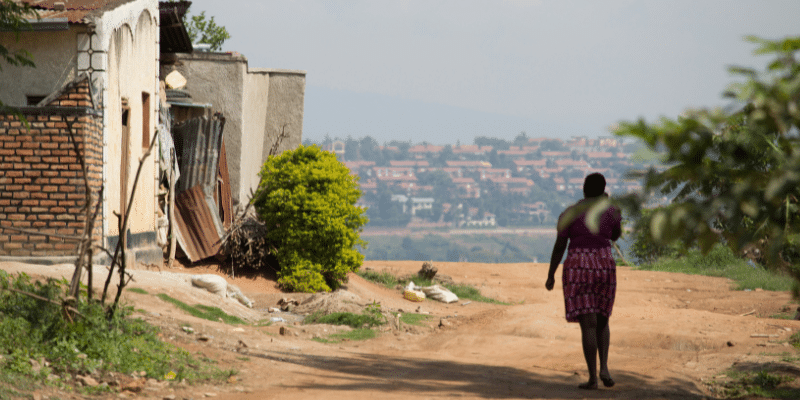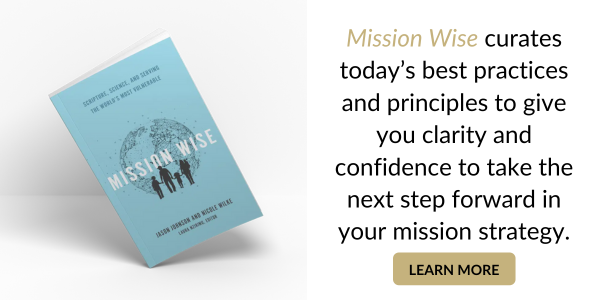Short-term mission trips have the potential to greatly benefit vulnerable children, families and communities when we align our efforts with principles for good practice. But without careful planning and understanding, they can also cause unintended harm.
In this article, we will explore the good that can come from short-term trips by sharing some helpful alternative models for volunteers seeking to care for children in orphanages and residential care facilities.
With wisdom and creativity, short-term mission trips can be powerful opportunities to learn, build relationships, raise awareness and support ethical care for vulnerable children.
Alternative short-term mission trip models to care for orphaned children
Visiting children in orphanages carries with it a range of risks and limitations. However, that doesn’t mean that we can’t benefit orphaned and vulnerable children as part of our volunteering. The following seven alternative models can harness our skills, resources and good intentions to truly benefit vulnerable children, families and communities. For a full listing of these models and principles, explore our full booklet, Wise Short-Term Missions.
Strengthening families: Host parent & child events to foster connection
Strong parent-child bonds can make a pivotal difference in a child’s life and identity. A special event designed for parents and children to spend quality time together can be powerfully formative. Work with local churches to plan activities, Bible studies or experiences tailored to strengthening these relationships.
Be sure to make the event welcoming and accessible for children being raised by grandparents, aunts and uncles, or other caregivers. The goal is to provide a special opportunity for parents and children to connect and to strengthen the skills of parents and caregivers to foster meaningful connection with the children in their lives.
Skills training: Build capacity among community members to care for vulnerable children
Short-term mission trips can be used to provide support and skills training that builds capacity in local individuals and communities to care for vulnerable children long-term. One-day workshops or multiple-day educational events can be used to guide local leaders and community members.
Some ideas include:
- Family strengthening and preservation training
- Child development
- Mentoring
- Family group conferencing
- Vocational skills or business training
Short-term teams should support the hosting organization in identifying their felt needs and determining the training topics that would best serve their community. By following the lead of local leaders, short-term teams can support events that provide critical training for those involved in caring for vulnerable children. Further, keep in mind that volunteers may not be qualified to teach the training, but can provide event support so that local leaders can train others in their community.
Language training: Facilitate listening, learning and building relationships through language exchange
Language and cultural education can facilitate mutual learning and relationship-building across groups. Your team could support local partners in their long-term efforts to connect with their community by using games, songs, and hands-on activities to practice and support their English curriculum. In exchange, trip participants can immerse themselves in the local language, customs and way of life to learn about the host country.
The key is to ensure your teaching remains contextualized within the long-term efforts of the hosting organization. Don’t attempt to independently create a stand-alone language camp. Also, be sure to give yourself time to absorb the local culture – not just teach your own. This ensures you give the gifts of teaching and honor to your hosts.
Sports and art: Connect across cultural differences and language barriers
Athletic and creative activities can bridge cultural and language divides and facilitate relationship-building between your host organization and the wider community. A sports camp could incorporate lessons on teamwork, healthy competition, and self-discipline through games and instruction. Arts camps can teach skills and techniques while providing children with the opportunity to express themselves through creative works.
Working closely with a local church, school, or community center will ensure the activities are culturally relevant and meaningful. Programs schedules should include time for participants to connect and build relationships with local program staff or church members.
Host a family camp: Provide a special place for foster and adoptive families to build memories
Caring for children through foster care, adoption, or kinship care can be an isolating experience at times. These families often face unique challenges that others don’t fully comprehend. Planning and hosting a special retreat or camp specifically for foster and adoptive families can create a haven of understanding and community. A camp uniquely designed for them can allow families to relax, have fun and create bonds with one another, all with other families who “get it.”
Work closely with local churches and ministries to plan activities, provide counseling support, and arrange accommodations as needed. Mission teams can serve behind the scenes to ensure practical needs are met while local leaders are engaging and connecting with families directly.
Advocacy and partnership building: Prepare long-term advocates to tell the story of the work being done
One of the biggest challenges for many orphan care ministries is simply raising awareness of their work and developing partnerships. Short-term advocacy trips can provide key individuals with an opportunity to see the long-term work happening on the ground and provide insights into the operations that happen behind the scenes to make it possible.
This type of trip can help individuals develop a clear vision and strategy for ongoing involvement with a particular ministry or cause.
Activities may include:
- Attending presentations and interviews to learn about the culture and the nature of the work that is happening locally
- Providing learning opportunities to understand the need and context of the work
- Discussion and training on ethical storytelling and advocacy best practices
- Capturing photos, videos or other media content to utilize in raising awareness
- Developing specific advocacy goals and plans to support the long-term goals of the hosting church or organization
The primary goal of a trip of this nature is to ensure participants catch a vision of the work and are equipped to continue advocating through their networks after the trip ends. The short-term trip experience should be the jumping off point for a journey of serving and sharing.
Social worker appreciation: Bless and encourage front-line workers caring for vulnerable children
Child welfare workers are often overworked, underpaid, and under-appreciated – yet they play a vital role in caring for vulnerable children. Short-term mission teams can support churches and local NGOs in developing supportive relationships with social workers (or other child welfare workers such as case workers, psychologists, and family advocates) in their community to ensure they know they are appreciated and valued. A short-term team could provide practical support to local leaders in blessing and encouraging these unsung heroes by:
- Hosting an appreciation meal or party for local child welfare workers and their families
- Delivering encouraging notes, gift baskets, or other tokens of thanks
- Providing practical, tangible items for social workers to use during their long hours of service with children and families
The goal is for the local church or hosting organization to take the lead in showing Christlike love and support to social workers in their community. Your short-term team is simply giving them a jumpstart from behind the scenes, ensuring that local leaders are the ones making connections and building relationships.
Moving beyond a one-time experience to long-term partnerships
As you can see, there is no shortage of creative ways short-term missions can make an ethical, meaningful impact for vulnerable children when done with wisdom and care.
The common thread between each of these alternative models is to help leaders move beyond a one-time participant-centered experience to favor long-term partnerships elevating local leaders.
When we assume a posture of humility – investing more effort in learning about the local context and felt needs rather than operating from our own assumptions – short-term mission teams can benefit the families and communities that care for children for the long-haul. Leaders can build lasting relationships across cultures by listening well and meeting felt needs.
Together we can move beyond simply participating in short-term trips; we can become true allies in the work God is doing around the world through local churches and organizations that are working to see every child cared for in a safe and loving family.
– Nicole Wilke is the Director of the Center on Applied Research for Vulnerable Children and Families.
————-
Read more about alternative models to short-term missions benefitting vulnerable children in our booklet, Wise Short-Term Missions and Practices.
If you are interested in going deeper, we encourage you to sign up for our upcoming Wise Short-Term Missions hybrid course beginning April 30, 2024 to learn alongside other leaders who are doing similar work and looking to grow in their impact and understanding of these unique issues.


